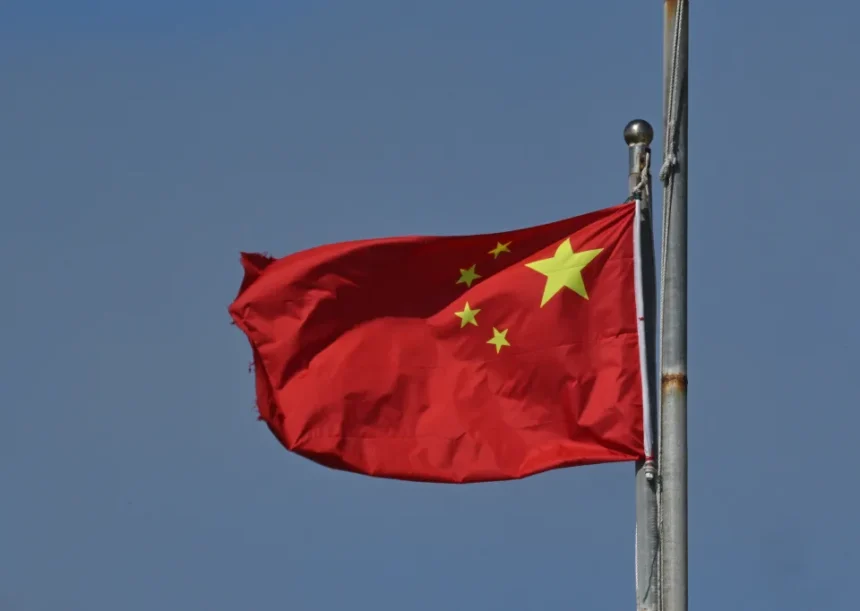Max Schrems’ NOYB is taking its first action against Chinese firms.
In a groundbreaking move, Austrian privacy advocacy group NOYB (None of Your Business) has filed its first formal complaints against major Chinese companies under the European Union’s General Data Protection Regulation (GDPR). The organization has taken aim at prominent names such as TikTok, Xiaomi, Shein, AliExpress, Temu, and WeChat, alleging serious breaches of EU privacy laws. According to NOYB, these companies have unlawfully transferred sensitive data belonging to European users to entities in China, a move that potentially undermines stringent EU data protection standards.
The Stakes: Data Transfers Under GDPR
The GDPR, often lauded as the world’s toughest privacy law, governs how personal data is collected, stored, and shared within the EU. One of its key tenets is the restriction on data transfers outside the EU unless the receiving country meets strict data protection standards. This provision aims to safeguard European citizens’ privacy from being compromised by lax or invasive data policies elsewhere.
NOYB, led by renowned privacy activist Max Schrems, contends that China fails to meet these standards. Describing China as an “authoritarian surveillance state,” the group argues that data transfers to the country put European users at significant risk of government surveillance and data exploitation. “Allowing such transfers undermines the very essence of GDPR,” Schrems stated.
The Allegations: A Closer Look
NOYB’s complaints are backed by the privacy policies of the companies in question. According to the advocacy group:
- TikTok, Shein, AliExpress, and Xiaomi explicitly acknowledge transferring user data to China.
- Temu and WeChat, while less transparent, mention data transfers to “third countries”—a term NOYB interprets as likely including China due to these companies’ corporate structures.
These practices, NOYB claims, violate GDPR’s rules on cross-border data transfers. Under GDPR, companies must either ensure that the destination country offers equivalent data protection or implement robust safeguards such as binding corporate rules. NOYB argues that these requirements have not been met.
The Demands: Suspension and Fines
In its complaints, NOYB is calling for swift and decisive action from EU regulators. Specifically, the group has requested:
- Immediate Suspension: Halt all data transfers from the named companies to China until compliance with GDPR is assured.
- Financial Penalties: Impose fines of up to four percent of each company’s global annual revenue. For context, this could amount to billions of euros given the massive revenues of these tech giants.
Such measures, if enacted, would send a strong message to companies operating within the EU: compliance with GDPR is non-negotiable.
A History of Advocacy
This is not NOYB’s first battle against global tech giants. The organization has previously taken on American companies like Apple and Meta over alleged GDPR violations. These efforts have resulted in landmark rulings and heightened scrutiny of how multinational corporations handle user data. By targeting Chinese companies, NOYB is broadening its scope to address privacy concerns on a truly global scale.
Why China?
China’s data governance practices have long been a subject of international concern. Critics argue that the country’s sweeping surveillance laws and lack of privacy protections make it an unsafe destination for personal data. Under Chinese law, companies are often required to share data with government agencies upon request, raising fears of misuse and abuse.
“The GDPR exists to protect individuals from exactly this kind of overreach,” Schrems noted. “We can’t allow companies to sidestep EU rules by transferring data to countries where privacy protections are virtually nonexistent.”
The Road Ahead
The complaints filed by NOYB mark the beginning of what could be a protracted legal and regulatory battle. European data protection authorities now have the task of investigating these allegations and determining whether the accused companies have indeed violated GDPR.
If NOYB’s demands are met, the consequences could be far-reaching. Companies might be forced to rethink their data-sharing practices and implement costly compliance measures. Furthermore, a precedent could be set for scrutinizing data transfers to other countries with questionable privacy records.
What’s at Stake for Users?
For millions of European users, the outcome of these complaints could significantly impact how their data is handled by global tech companies. A ruling in favor of NOYB could enhance privacy protections and curtail the unchecked flow of personal data to regions with inadequate safeguards.
Conversely, failure to act could erode trust in GDPR’s effectiveness and leave users vulnerable to exploitation. As digital ecosystems grow increasingly interconnected, ensuring the integrity of privacy regulations has never been more critical.
Final Thoughts
NOYB’s latest campaign underscores the growing importance of data sovereignty and user privacy in an era dominated by global tech giants. By targeting Chinese companies, the group is tackling a new frontier in the fight for digital rights.
Whether these efforts will lead to meaningful change remains to be seen. One thing, however, is clear: the battle for privacy in the digital age is far from over.










